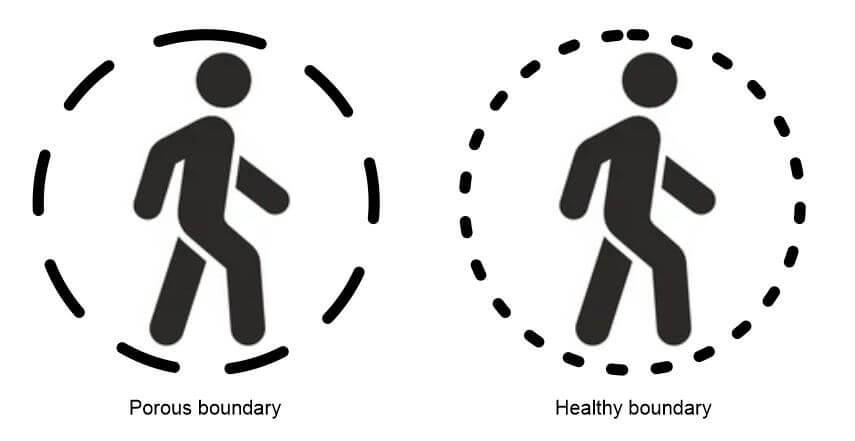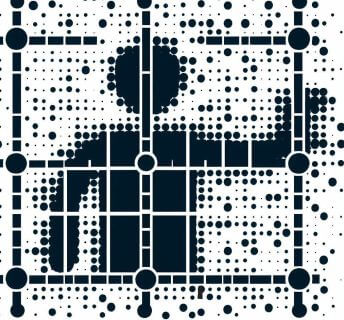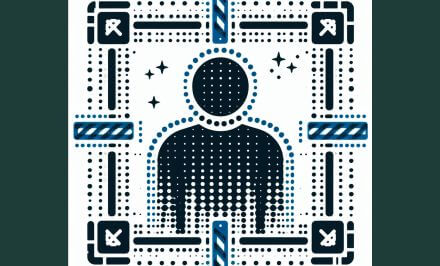Last updated on April 25th, 2025 at 02:58 am
Discover the impact of porous boundaries in various contexts, explore real-life examples, and uncover effective strategies to address and rectify them.
Porous boundaries are like imaginary lines that protect you from unwanted intrusions, and physical or emotional harm, and allow you to maintain your individuality and autonomy.
Porous boundaries can be experienced in many areas of society including personal lives and a country, but we are focusing on the context of personal lives in society.
While porosity might sound negative, it has some benefits too. The key is to find a balance between being porous and rigid along the boundary spectrum.
We are going to explore in this post, examples, benefits, limitations, and how to strike a balance and maintain healthy porous boundaries.
Recommended: Understanding Personal Boundaries
Table of Contents
- What are Porous Boundaries?
- Importance of Addressing Porous Boundaries
- Benefits of Porous Boundaries
- Drawbacks of Porous Boundaries
- Balancing the Advantages and Disadvantages of Porous Boundaries
- People are not the Cause of Your Porous Boundary
- Causes of Porous Boundaries
- Traits and Signs of Porous Boundaries
- Examples of Porous Boundaries
- Effects of Porous Personal Boundaries on Mental Health
- How to Fix Porous Boundaries
- Rigid vs Porous Boundaries
- Frequently Asked Questions
- Conclusion
What are Porous Boundaries?

Porous Boundaries Meaning
Porous boundaries are a type of boundary that allows for a free flow of information, emotions, and experiences between yourself and others.
This means that access to you – your emotions, body, and material things have no restrictions.
In other words, it is a boundary that is flexible, and permeable, and allows for a certain level of vulnerability.
A porous boundary is not the same as having no boundary at all, but rather a boundary consciously or unconsciously set to allow for an unfettered connection.
This connection by be good or bad for growth and can maintain or strain your sense of self.
However, this depends on whether it is controlled or uncontrolled.
Suggested: What is Hyper-individualism?
Importance of Addressing Porous Boundaries
1. Establishing healthy boundaries is crucial for maintaining one’s own identity and avoiding codependency in relationships.
2. Well-defined boundaries allow individuals to assert their autonomy and self-respect, fostering personal growth and fulfillment.
3. Boundaries are essential for trust and emotional intimacy in relationships, creating a safe space for vulnerability and closeness.
4. Clear boundaries enable effective communication and conflict resolution, reducing misunderstandings and promoting healthier resolutions.
5. Porous boundaries can negatively impact emotional and mental well-being, emphasizing the need for self-care and healthy coping mechanisms.
Also Read: Explaining Collectivism and Collectivist Culture
Benefits of Porous Boundaries

- One of the main benefits of porous boundaries is that it allows for deeper and more meaningful connections with others.
- When you are open and receptive to the experiences and emotions of others, you create a safe and supportive space for them to be vulnerable and authentic. This, in turn, can encourage a stronger sense of trust and intimacy in your relationships.
- A porous boundary can also help you to grow and learn from your interactions with others.
- By being open to new experiences and perspectives, you can expand your understanding of the world and ourselves. This can lead to personal growth and development, as well as a greater sense of empathy and compassion for others.
Drawbacks of Porous Boundaries

Porosity in boundaries is the opposite of rigid boundaries, which is having too strict boundaries that keep people away from you.
While a porous boundary can have many benefits, it can also have drawbacks.
One of the main risks of a porous boundary is that it can leave you vulnerable to emotional and psychological harm.
When you are open to the emotions of others, you run the risk of absorbing their emotions.
This can be especially challenging if you are already dealing with your emotional struggles.
Another potential drawback of a porous boundary is that it can lead to a loss of individuality and autonomy.
Let’s have a bullet list of all of that:
- Lack of Privacy: When boundaries are loose, personal information may be easily shared, leading to feelings of vulnerability and discomfort.
- Diffusion of Responsibility: Porous boundaries can cause you to take on more tasks than you can handle, leading to overwhelm and stress.
- Lack of Focus and Decreased Productivity: Constant interruptions and distractions due to porous boundaries make it difficult to maintain focus and productivity.
- Unrealistic Expectations: Blurred boundaries can result in others having unrealistic expectations, leading to pressure and potential failure.
- Increased Conflict: Make it easier for conflicts and misunderstandings to arise, especially when personal and professional lives overlap.
- Inability to Say No: If you have loose boundaries, you struggle to set limits, leading to over-commitment and neglect of self-care.
The key is creating a balance that’s not too strict nor too porous. This however requires intent and awareness of oneself to know when and how to strike it.
Related: Creating Healthy Intimate Boundaries With Your Spouse
Balancing the Advantages and Disadvantages of Porous Boundaries

The key to balancing the advantages and disadvantages of porous boundaries is to master self-awareness and know what your priorities are.
If you understand yourself and what you want for yourself, you will assert these needs and wade off any factors that would come in the way.
When that is done, you can hone your skills in boundary-setting and communication to let people know their limits around you.
By developing a clear sense of what your boundaries are, you can communicate these effectively to others.
Learning to say no when needed, expressing our needs and expectations, and setting healthy boundaries in your relationships can all help you maintain healthy porous boundaries.
People are not the Cause of Your Porous Boundary
Most people whom you overshare yourself with might not be manipulative or the cause of your boundary’s porosity, but because you don’t have restrictions, they unconsciously take advantage.
If your insecurity spurs you to give unnecessary assistance or open up yourself, the recipient might not reject it because it saves him time and energy.
Anybody who fetches ant-infested firewood would have lizards around for a feast.
Again, self-awareness and knowing what matters to you is key to having a defined boundary for yourself.
Related: Importance Of Setting Emotional Boundaries
Causes of Porous Boundaries

A porous boundary is caused by similar factors as other boundary types which all act on your self-esteem.
Anything that makes you lose your self-esteem is likely to cost you your boundaries or not to establish boundaries at all.
Here are some of the causes of porous and weak boundaries:
- Fear of rejection
- Faulty upbringing
- Giving people too much care and attention
- Religion
- Culture
- Low-self esteem
- Poverty
1. Fear of Rejection
People who are afraid of rejection by others would exhibit porous boundaries, allowing unfettered access to their emotions, physical space, and material belongings.
They would give up their restrictions for acceptance and validation by others.
Again, this is as a result of low self-esteem
2. Faulty Upbringing
If parents fail to respect the needs and well-being of a child, that child might develop a strong feeling of being less important and not expecting much in life.
This is common for people raised in abusive homes where self-suppression, projected emotions, and lack of safety reign supreme.
They grow up with this idea and live their lives serving others. Also, families without family boundaries raise kids with weak boundaries.
Having boundaries is not a personality type, but a symptom of embedded childhood adaptation that has become instinctual.
3. Giving People too Much Care and Attention
Porous boundaries can come about when you pay too much attention to people around you and become excessively involved in their affairs.
When you do this often, you unconsciously sip and dissolve into their affairs and lose yourself.
4. Religion
Religion has been a potent tool for altering human behaviour because of the many sentiments attached to it.
People are emotionally attached to religion and it is used to sway them into calculated behaviours.
Religion can be easily latched on to crumble boundaries by coercing or cajoling others to do its bidding.
Pastors, Imams, and other religious leaders utilize this side of religion effectively on unsuspecting and loyal followers.
4. Culture
Culture is another tool that is liable to strip people of their boundaries or stop people from having boundaries in the first place.
In some cultures, young people don’t have the right to keep money, whatever they earn is submitted to their parents or guardians.
Also, in some cultures, women do not have a life of their own, but to the whims of the family or their husbands.
This is automatic porosity in their boundaries as their rights to selfhood are stripped, leaving them vulnerable to manipulations.
5. Low-self Esteem
As described above, having low self-esteem can be a reason for having porous boundaries.
People who don’t have confidence or trust in their abilities unconsciously open themselves up for trespasses to feel among.
They feel they are not good enough or have what it takes to have an opinion or make a splash.
Everyone can penetrate them, abuse and use them for their gains without any form of resistance.
6. Poverty
Of course, poverty can trigger a lot of negative situations and force you out of your natural element.
Poverty strips people of their humanity, dignity, and respect. It makes people do things they wouldn’t do just so they can eat.
Being poor means one’s access to good things in life is limited – the quality of people they mingle with, low spending power, the kind of places they visit, and the respect they get.
All these create so many weaknesses in the quality of his life that he is left vulnerable to porous boundaries.
Related: Setting Healthy Boundaries In A Romantic Relationship
Traits and Signs of Porous Boundaries

- Shares too much personal information without restraint
- Clinginess
- Dependent on other people’s opinions
- Fears rejection
- Stretch themselves too far for others with little or no gain
- They change or lose their personalities for others
- They are jittery that when their ideas are bad or rejected, they lose the little respect they have and so avoid giving opinions
- They are “yes” members in a group, and never say “no” even when they don’t agree with the opinion or it’s directly against them
- They love to be led and detest taking charge
- They are scared of losing connections with people and so are people pleasers to be in their good books
Examples of Porous Boundaries
1. Herd Mentality
Herd mentality is when a person follows the crowd or a group because he wants to feel among them.
This makes him therefore neglect or lose his individual qualities in the process while adopting those of others in the group.
This can be seen in the lives of criminals, delinquents in society, and young people who have no direction in life.
3. Never Having an Opinion on Issues
Not having an opinion is another example of having a porous boundary.
This is because you think your opinion will not count, people will laugh at it, or because you think you are not worth having an opinion.
4. Clinginess
In relationships, clinginess is a sign of having porous boundaries because the person has this gnawing feeling of inadequacy and, therefore clings to others annoyingly to remain relevant.
4. Being Manipulated by Religious Leaders
Some religious leaders use the tool of religion to manipulate and control their members who follow sheepishly.
They open up for their religious leaders on all fronts, including finances, family, and other areas of life that should be private.
5. Giving Unsolicited Assistance
Growing up, I used to have people who admired me because of my soft and gentle nature.
They loved to spend time with me and assist me with laundry and other house chores.
They made me a priority and discomforted themselves to please me so I could value them.
This was uncomfortable to me because they belittled themselves for my sake and I couldn’t help because I was quite young.
People give unsolicited assistance so they can score some points and be regarded, this is a glaring case of insecurity and a very porous boundary.
Effects of Porous Personal Boundaries on Mental Health

Living your life for others at the expense of your mental well-being leaves you hollow and bruised on many fronts, including on the social front.
The porous boundaries are an indication of a lack of self-confidence, self-respect, and self-promoting values.
People – friends, family, co-workers, and every other person who has contact with you would exploit you wittingly or unwittingly if you do not assert your boundaries.
Here are some effects of having porosity in your boundaries:
- Porous and loose personal boundaries can lead to anxiety and depression as you may constantly feel overwhelmed and unable to create a sense of safety and stability in your life.
- Having weak boundaries can result in toxic and abusive relationships, as you may struggle to establish and enforce healthy limits, allowing others to take advantage of them.
- Difficulty in attaining self-fulfillment can be a consequence of porous personal boundaries, as you may prioritize the needs and feelings of others over yours.
- If you have weak boundaries, you will experience a persistent feeling of worthlessness, as you struggle to define your self-worth independent of the opinions and validation of others.
- Lack of personal growth may occur when you fail to establish clear boundaries, as you will resist necessary changes and challenges that are essential for personal development and advancement.
- Porous boundaries can contribute to suicidal thoughts, as you feel emotionally overwhelmed, unsupported, and unable to protect yourself from negative influences or harmful situations.
How to Fix Porous Boundaries

Practicing self-care and self-knowing will help you get rid of all the porosities and set you on the path to healthy boundaries.
Just like other boundary defects, porous boundaries can be fixed by identifying and accepting they are there.
This is the first step in fixing your porosity. Identifying the loopholes would naturally bring forth how to fix them.
Repairing your weak boundaries and moving to healthy boundaries will demand personal work from you.
However, if you are intentional with the porosity of your boundary, then it’s okay.
Here are some tips to give you clarity:
1. Define and Communicate Your Boundaries Clearly
tart by determining what your boundaries are and what you feel comfortable with.
Then, communicate them assertively and clearly to the people in your personal life.
Let them know what is acceptable and what is not.
2. Learn to Say “no”
Practice saying no when someone asks you to do something that crosses your boundaries.
Remember that you have the right to decline requests that make you uncomfortable or overwhelm you.
Saying no will help you establish and maintain your boundaries.
3. Reflect on Your Values and Priorities
Ensure that your boundaries align with your values and priorities.
When you have a clear sense of what is important to you, it becomes easier to set boundaries and stick to them.
Prioritizing yourself and your well-being is essential for maintaining healthy boundaries.
4. Assess Your Relationships
Evaluate the people in your life and determine whether they respect your boundaries.
If you find that certain individuals consistently violate or ignore your boundaries, it may be necessary to reassess the relationship and consider setting firmer boundaries or limiting contact.
5. Practice Self-care
Taking care of yourself is crucial for maintaining strong boundaries.
Engage in activities that make you feel good and prioritize your physical, mental, and emotional well-being.
When you prioritize self-care, you are better equipped to set and maintain personal boundaries.
7. Practice Self-awareness
Pay attention to your thoughts, emotions, and physical sensations.
Notice when you feel uncomfortable or when your boundaries are being crossed.
By increasing your self-awareness, you can proactively address any situations where your boundaries are at risk.
8. Be Consistent
Consistency is key when it comes to maintaining boundaries.
If you ignore or allow certain behaviours sometimes and not others, it can create confusion and inconsistency.
Make a conscious effort to enforce your boundaries consistently, which will help others understand and respect them.
Maintaining a healthy porous boundary
So, how can we maintain a healthy porous boundary? One way is to set clear and intentional boundaries around what we are willing and able to share with others.
This means being honest with ourselves and others about our emotional limitations and needs.
We can also practice self-care and emotional regulation techniques to help us manage our own emotions and prevent emotional burnout.
Another way to maintain a healthy porous boundary is to practice active listening and empathy.
This means being present and fully engaged in our interactions with others, without judgment or preconceived notions.
By truly listening to others and trying to understand their perspective, we can create a safe and supportive space for connection and growth.
Rigid vs Porous Boundaries
Rigid boundaries are a psychological state where an individual has strict limitations on their behaviours, thoughts, and emotions.
People with rigid boundaries tend to be closed-off and avoid emotional intimacy, often distrustful of others.
They may have difficulty expressing vulnerability or seeking support.
On the other hand, porous boundaries as we have been discussing in this article describe a state where you allow your thoughts, feelings, and behaviours to be easily influenced by others.
People with porous boundaries have difficulty maintaining personal boundaries, often becoming overly involved in the problems and opinions of others.
You will have difficulty asserting yourself or setting limits.
Finding a balance between boundaries is crucial for healthy relationships and your well-being.
Frequently Asked Questions
What are examples of porous boundaries?
Examples of porous boundaries include overextending yourself to please others, taking on responsibilities that are not yours, and letting others invade personal space without permission.
How do I make my boundaries clear?
To make boundaries clear, communicate assertively and honestly about your needs, set limits on what you are comfortable with, and reinforce boundaries consistently.
What are the benefits of porous boundaries?
The benefits of porous personal boundaries include feeling connected and liked by others, but it can also lead to exhaustion, burnout, and feeling overwhelmed as personal needs are consistently neglected.
What are the consequences of having porous personal boundaries?
Having porous personal boundaries can lead to feelings of overwhelm, a lack of self-care, and difficulties in maintaining healthy relationships.
How can I establish healthier personal boundaries?
Start by identifying your needs and values, practice assertiveness, and communicate your boundaries clearly and consistently.
What are some signs that my personal boundaries are too porous?
Feeling constantly drained or taken advantage of, difficulty saying no, and minimizing your own needs and desires are common signs of porous personal boundaries.
Conclusion
Porous boundaries can be a valuable tool for creating deeper and more meaningful connections with others.
However, it is important to be mindful of the potential risks and drawbacks and to take steps to maintain a healthy balance between openness and self-preservation.
By setting clear boundaries, practicing self-care and emotional regulation, and practicing active listening and empathy, you can create a safe and supportive space for connection and growth while still maintaining a strong sense of self.
REFERENCES:
Pious Clements is the insightful voice behind "The Conducts of Life" blog, where he writes about life ethics, self-development, life mastery, and the dynamics of people and society.
With a profound understanding of human behaviuor and societal dynamics, Pious offers thought-provoking perspectives on ethical living and personal growth.
Through engaging narratives and astute observations, he inspires readers to navigate life's complexities with wisdom and integrity, encouraging a deeper understanding of the human experience and our place within society.

